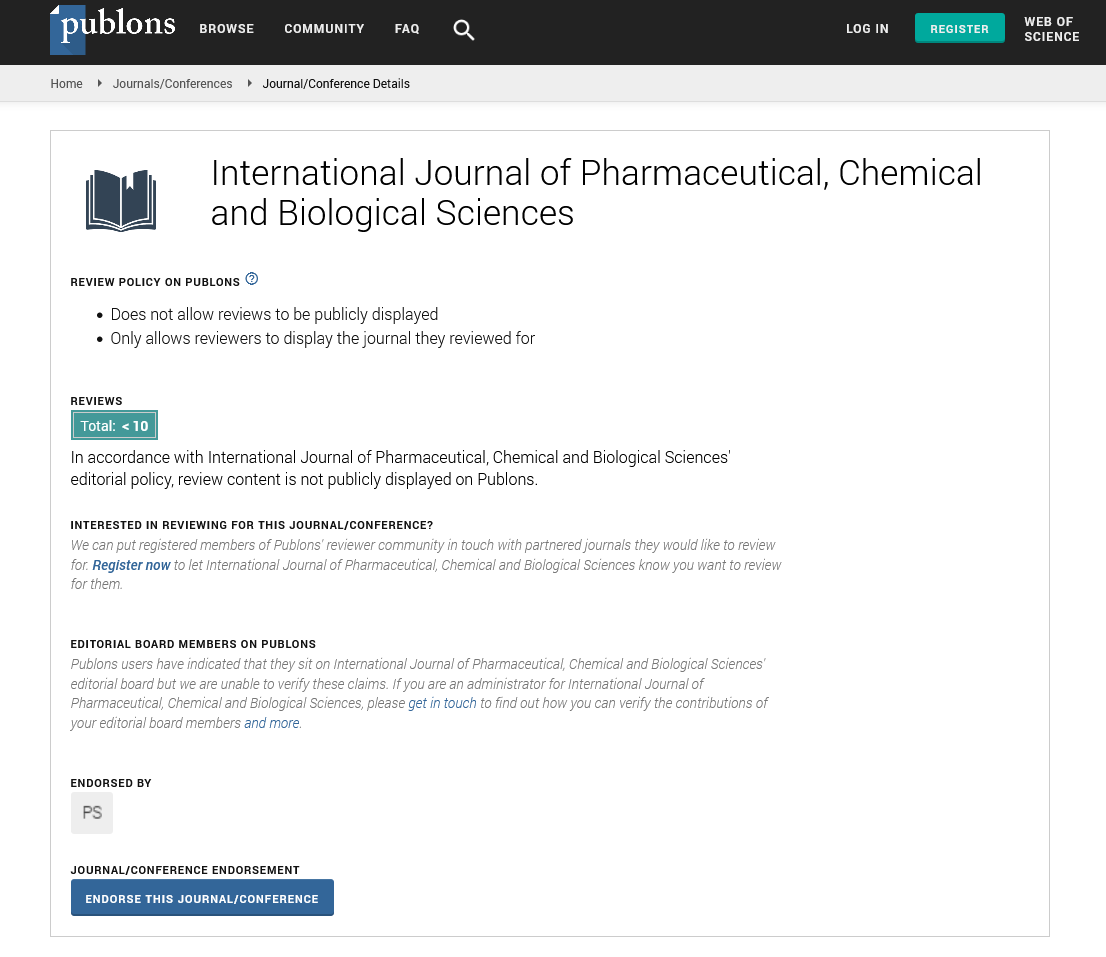Abstract
Author(s): Hayder M. Al-kuraishy1, Ali I.algareeb1 and Salah A.Al-windy2
From the history of the development of pharmaceutical compounds it is evident that any drug may have the possibility of possessing diverse functions and thus may have useful activity in completely different fields of medicine and different studies showed that newer antimicrobials have revealed antimicrobial action involved in the management of diseases of non-infectious etiology. This study was done to determine in vitro antibacterial activity of selected selective cyclooxygenase-2inhibitor. Twenty two strains of gram positive and gram negative bacteria, which were isolated from skin and urinary tract infected patient. These bacteria were being cultured on specific optimal growth media. The antibacterial activity of selective COX-2 (meloxicam,celecoxib,valdicoxib and nimesulide). Inhibitors determined by measuring zone of inhibition and minimal inhibitory concentration (MIC).Results showedthat MIC of celecoxib and meloxicam in μg/ml was ranged from 5-80μg/ml on selected bacteria compared with negative control distilled water (D.W) , valdicoxib was 80-160μg/ml, whileand nimesulide was ranged from 5-40 μg/ml .All the selected bacteria were showed sensitivity for all coxib used in this experimental study except Pseudomonas aeruginosawhich showed resistant to meloxicam and valdicoxid , Klebsiella pneumoniaeresist to nimesulide while Staphylococcus aureus wasresist to valdicoxib . The smaller zone of inhibition showed by valdicoxib and celecoxib which was 3mm against Klebsiella pneumoniae, while the larger zone of inhibition showed by nimesulide which was 26mm against Escherichia coli.In conclusion selective cyclooxygenase (cox-2) inhibitor possesses antibacterial activity this is especially for nimesulide and little by valdicoxib. Escherichia coli are sensitive bacteria to all coxib. Consequently; coxib may be regarded as anti-inflammatory and antibacterial agent especially for urinary tract infection where Escherichia coli are the major causative organism.

